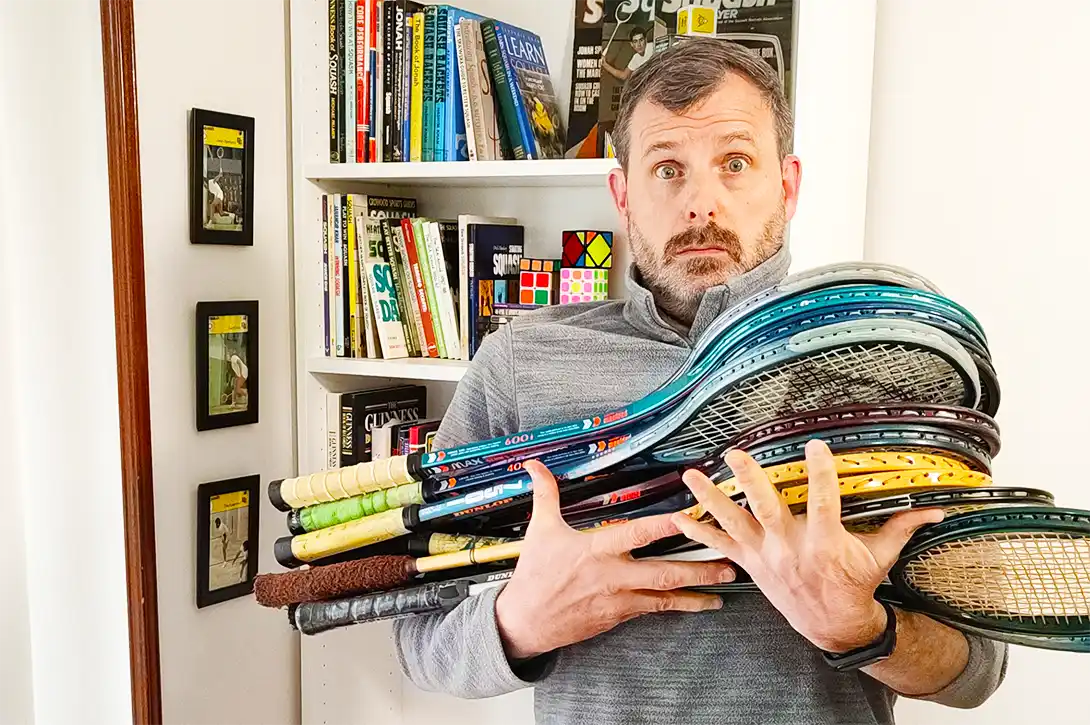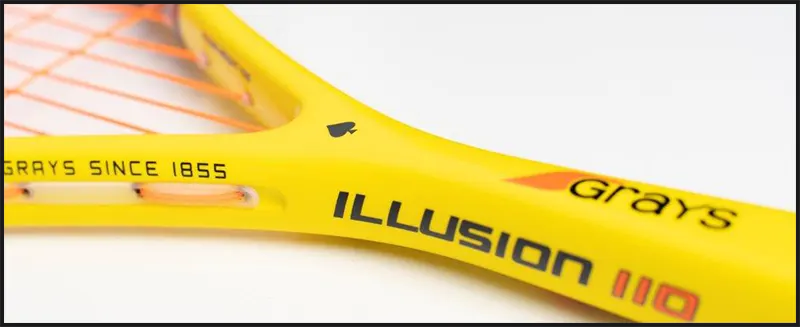10 June 2022 / 3-Min Read / Translate
The first thing to know is that this article is not for beginners, improvers or juniors players. If you are just starting to play squash, keep with a modern, but not expensive racket and if you just play for fun with your friends, then this probably won’t interest you – but who knows, maybe it will.

Oh No, I don't have racket to use!
In my mind there are three periods of vintage racket that matter:
WOODEN – basically anything from around the early 1970s to around the mid 1980s. Rackets before the UK boom of around the 70s are less common and probably should be kept on the wall for display rather than risk breaking them. They were heavy and unforgiving, but if you hit the ball it the sweetspot, they felt great.
EARLY GRAPHITE – These are the types of rackets Jahangir Khan (Unsquashable), Jansher Khan (Ascot) and Rodney Martin (Prince) made popular. They were quite heavy, at least compared to today’s rackets, but were a significant step up from the wooden Dunlop Maxply Fort’s that were the king racket at that time.
LATER GRAPHITE – These rackets are from around 1995 to around 2010. The can look very similar to today’s rackets and twelve years old (at the time of publication) might not seem that far back, but in terms of technology, it’s a big difference.

This is the Grays Illusion 110 - not vintage, but just as beautiful.
Well, all three eras have something to offer, but put simply, the better you are and the better your swing technique, the older the racket to practice with. Do I have an exact formula for deciding how god is good enough to sue a wooden racket? No, but unless you would describe yourself as an advanced player, I would avoid the wooden rackets if I were you.
Firstly the weight. Using a heavier racket for at least 30 minutes certainly won’t make you stronger, but it will make your normal racket feel lighter. It’s kind of like reverse psychology for the muscles. This is why I say that you must have good technique to consider the wooden rackets. If you don’t and you “flick” your wrist with a heavy wooden racket you could easily injure yourself.
Secondly, the smaller head, at least with the wooden and early graphite rackets, make timing a lot harder. I had the vague plan to build and sell a squash racket with a small head like a wooden racket, but using modern graphite materials and construction. I believe that a racket like that, used regularly would really improve players’ timing. But I found that getting demonstration frames designed and built was over 10,000 Euros, so I had to forget that idea.
It’s actually quite easy to find these sorts of rackets on many second-hand websites and services. Ebay, Wallapop, Gumtree, Craigslist, Shpock, Charity shops and many other places sell them. Don’t rush to buy the first one you see and definitely don’t pay more than 10 for one (doesn’t matter if that’s Euros, Pounds or Dollars).
Put it in your bag and every now and again practice with it. At first you are going to hate it, and probably me for suggesting it, but I promise that after 5 minutes it will feel much better. And the moment you go back to your normal racket, it will feel like heaven!
Using a vintage racket as part of your training programme will improve your timing and make you realize how good modern rackets really are. Good Luck!